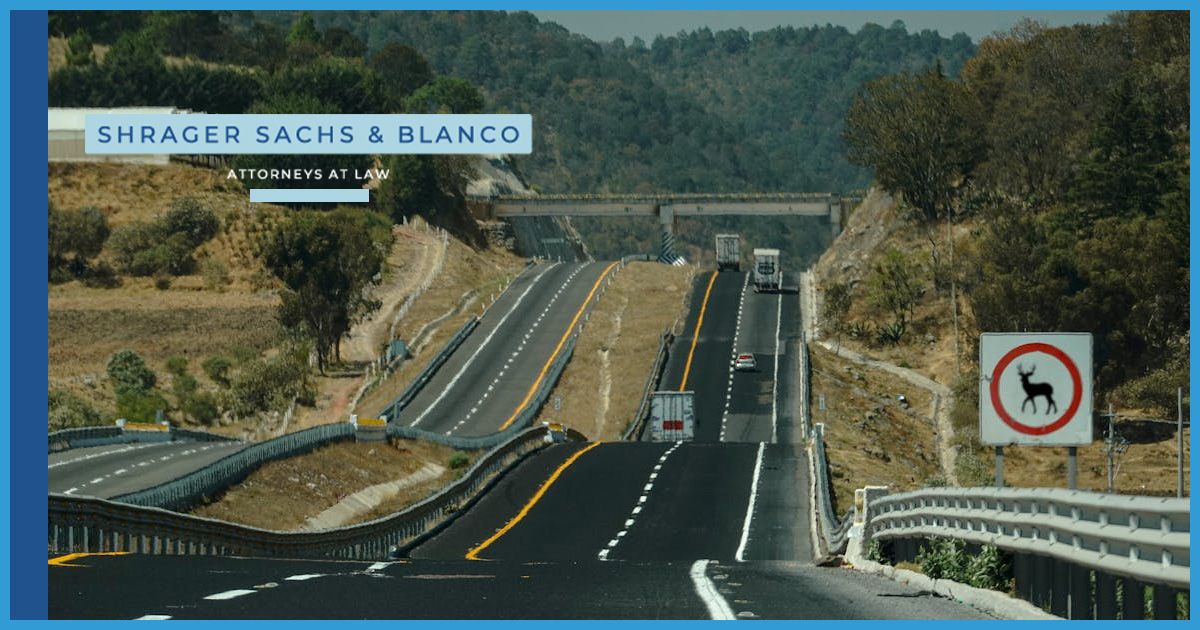Image may be NSFW.
Clik here to view.
Hitting a deer is one of those events that drivers fear but rarely expect. Many times, the aftermath can be traumatic. Not only are you dealing with vehicle damage, but you are facing injuries that disrupt your life in ways you didn’t anticipate.
After the immediate shock, you might wonder, “Could someone be held responsible for what happened?”
While most deer-related accidents are seen as unavoidable, there are situations where negligence by another party plays a role. If you’ve been hurt in this incident, you need to explore your options. Here is what happens if you are injured after hitting a deer.
Can Someone Be Held Responsible?
In most situations, collisions with deer are considered accidents that are often attributed to natural causes. Sometimes, the insurance company may refer to it as an “act of God.” Most of the time, there is no obvious person or entity to hold accountable. Wildlife does not obey traffic rules, and a deer crossing the road is out of everyone’s control.
However, not all deer-related accidents are random. In some circumstances, negligence by a third party can contribute to the car crash. With that, you might have a case for pursuing legal action. There are a few examples of who may be responsible for your vehicle accident.
Government Responsibility
Local or state governments are responsible for maintaining safe roadways. Often, this will involve addressing wildlife hazards. If you hit a deer in an area with a known history of similar accidents, and there were no wildlife crossing signs or proper road maintenance done to the area, you might have grounds to claim negligence.
For example, if poor lighting, overgrown vegetation, or a lack of warning signs made it impossible to see the deer in time, the government’s failure to address these problems could mean they share some responsibility for your accident.
Landowner or Business Negligence
In some situations, a private landowner or business could be at fault for your deer-related accident.
Some examples might include a farm with broken fencing that allows deer to roam onto nearby highways or a business located near a wildlife-rich area that fails to notify authorities. Under those circumstances, their actions or inaction contributed to the collision.
As a result, they could be held legally liable for your injuries.
Another Driver’s Negligence
Sometimes, other drivers play a role in deer accidents, even if they did not hit the animal. For example, if a car swerves recklessly to avoid a deer, and that forces you off the road, the other driver may be responsible. If the other driver’s inattention or speed makes it impossible for you to react safely to the deer in front of you, they could be liable for the incident.
In these examples, the at-fault driver’s negligence could make them responsible for your injuries.
However, you will need to rely on strong evidence, such as witness testimony, accident reports, or dashcam footage, to prove that the other driver’s actions caused your crash.
Vehicle Manufacturers
While rare, there are instances where a vehicle defect contributes to an accident with a deer.
If your airbag failed to deploy properly or your brakes malfunctioned during the crash, the vehicle manufacturer could be partially liable for your injuries. In these cases, you may have a valid product liability claim.
While pursuing a lawsuit can help you recover the compensation you deserve, it’s not always an easy process. Proving negligence, especially when dealing with government entities or private landowners, can be challenging. You’ll need strong evidence to show how another party’s actions, or lack of action, contributed to the accident.
What Happens If No One Was Involved?
In most cases, injuries or damages resulting from hitting a deer are handled through your insurance instead of a lawsuit. These types of accidents are considered unavoidable, and there’s usually no third party at fault to hold legally responsible.
If you’ve collided with a deer, your insurance coverage will be the primary way to address vehicle repairs, medical expenses, or other losses.
Most insurance claims for hitting a deer fall under comprehensive coverage, not collision coverage.
Comprehensive coverage applies to damage caused by events beyond your control, such as wildlife collisions.
What about injuries?
If you suffered injuries in the accident, medical payments coverage (MedPay) in Pennsylvania or personal injury protection (PIP) in New Jersey may help cover your medical bills. These policies are designed to pay for medical expenses, no matter who is at fault.
Even though filing through insurance is the most common route, the process isn’t always easy. Insurance companies may argue that your policy doesn’t cover the damage or injuries. Also, they could offer a settlement that is lower than the true value of your damages.
Unfortunately, if you are injured, the insurers may try to deny claims related to medical expenses, especially if injuries are severe or long-term. In these cases, you might need to consult an attorney to ensure you’re being treated fairly and receiving the full compensation you’re entitled to under your policy.
If you’ve been injured in a deer-related accident and suspect negligence played a role, you will want to speak with a personal injury lawyer. They can help you clarify your options.
While many deer-related accidents don’t involve legal action, some do, especially when negligence by a third party is involved. If you’re facing mounting medical bills, lost income, and other damages, exploring your legal options might be the key to getting your life back on track.
At Shrager, Sachs & Blanco, we’re here to help you understand your legal options.
The post What Happens if You’re Injured After Hitting a Deer? appeared first on Shrager, Sachs, & Blanco.
